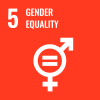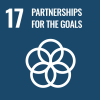Rwanda – For over a decade, Nicaise has been traveling around the world, challenging gender norms and opening doors for more women to get involved in the tech sector.
Her journey began in Algeria, after receiving a scholarship from the Government of Rwanda to pursue a bachelor’s degree in the field of science and technology. Further pursuing her studies in Communications Engineering led her to Lyon, France where she studied at the National Institute of Applied Science. After graduating with a Masters, she stayed to work in France for several more years before her career moved her to Ireland and later Seattle, Washington.
Currently, Nicaise works for Amazon as a Software Quality Assurance Engineer where she is heading and validating the onboarding of new languages and localization of features for Alexa – Amazon’s world-famous voice-activated virtual assistant powered by artificial intelligence.
However, getting there was more challenging than it looked on paper. Although the tech industry has been evolving to include more women, stereotypes around women are persistent.
“Because it’s a male-dominated industry, sometimes people lack the openness to believe that women can do some jobs just as good,” Nicaise explains.
This can create an environment where women working in a male-dominated industry, like Nicaise, feel symptoms of ‘imposter syndrome’. “When I started, I had small remarks or conversations with people who were not only surprised that I was there, but also that I knew how to do things. The way people act shows you that they don't trust what you're doing, which makes you feel like you don't deserve to be there.”
The additional family requirements and challenges related to the gender pay gap sometimes push women out of the tech industry.
“The pay gap as well, is often a big obstacle because you can feel like you're doing a lot, but not necessarily being recognized the same way,” Nicaise continues. “Those unconscious biases that we can have, related to our upbringing or society need to be considered.”
Despite these challenges, Nicaise has persevered. As someone who grew up as part of Rwanda’s younger generation, Nicaise was motivated to take an active role in her country’s transformation and growth now that she is well established in her field.
Through funding from Belgium’s Directorate-General for Development Cooperation and Humanitarian Aid, Nicaise returned to Rwanda in 2021 under one of IOM’s diaspora engagement projects in the technical vocational and education sector to teach Instructors and Assistant Lecturers working at Integrated Polytechnic Regional Colleges (IPRCs) how to develop mobile applications.
In addition to supporting Rwanda’s development, she is working to open the doors for more women in her field. Together with two colleagues, the concept of SheUps was conceived. This initiative stemmed from a shared realization that embarking on a journey in tech entrepreneurship as a woman or girl can often feel overwhelming.
“We identified a significant barrier to be the lack of representation, with only 9 per cent of women serving as role models in the sector, compounded by a scarcity of targeted resources and programs for aspiring female entrepreneurs,” says Nicaise.
Their primary objective became clear: to establish a comprehensive platform that would demystify tech entrepreneurship by providing easy access to essential resources necessary for women to launch their ventures in the tech industry. This overarching vision extended beyond simply providing access to resources to fostering meaningful connections with role models, advisors, and investors while also establishing a fund to support the next generation of women tech leaders.
Since its inception, SheUps has curated and negotiated access to up to 85 resources from various providers. Additionally, Nicaise and her colleagues have organized six learning and networking events in Ireland and one in the US, facilitating valuable connections and knowledge sharing within the community.
However, recognizing the need for refinement, they recently made the decision to pause operations to reflect and strategize on how best to achieve their mission. Despite facing challenges and not meeting expected outcomes, their commitment to achieve their goal and vision remains steadfast.
“We are currently undergoing a revamp, but our dedication to empowering women in tech remains unwavering,” she adds.
As Co-Founder of SheUps, Nicaise helped to create a network for current and future generations of female tech leaders to enable meaningful connections, share resources and find investment opportunities for their start-ups.
While the SheUps community is open to everyone, it provides a strong platform for women looking to break into tech sector and contribute to its development through the inclusion of women and girls.
“I think we have proven as Rwandans, we can come from nowhere and make tremendous strides and we have proven that women are capable. So, I would encourage young girls to dream high, dream big, be confident, think out of the box and look at any ways you can help contribute to not only your future, but the future of our country and the next generation.”


